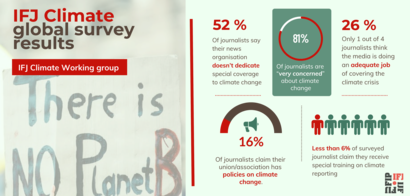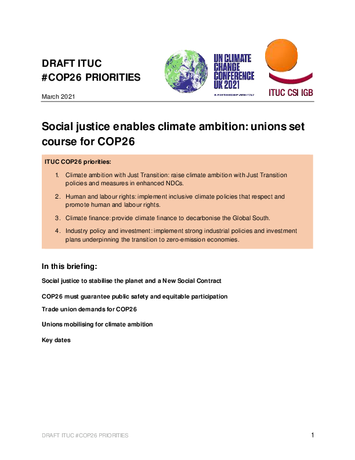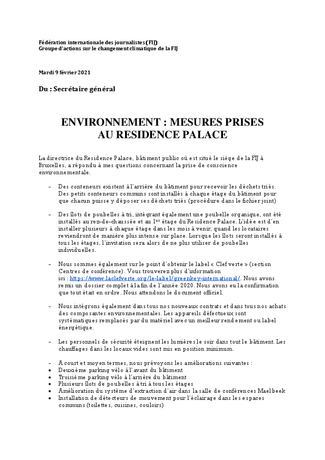
- IFJ
- Actions
- Working Groups
- Climate Change
News

Webinar: 'Covering the climate crisis: What’s next?'
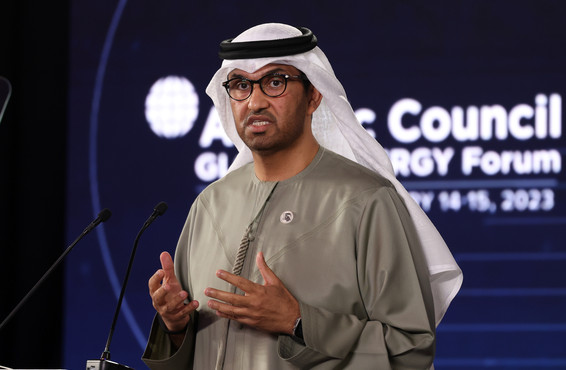
UAE: IFJ Climate Action Team signs letter by world groups condemning the announcement of oil executive as COP28 president
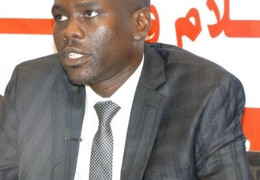
Tchad : L'UJT et la FIJ organisent un atelier sur le reportage sur le changement climatique
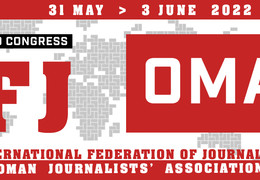
31st World IFJ Congress kicks off on 31 May in Muscat, Oman
No journalism on a dead planet
IFJ Working Group on the Climate Crisis
In 2018, the United Nations’ Intergovernmental Panel on Climate Change released a report warning that the world has only 12 years to prevent catastrophic damage by limiting temperature rises to a maximum of 1.5 °C. Meanwhile, the International Labour Organization predicts 72 million jobs will be lost by 2030 due to heat stress. Biased disinformation on climate change has led to decades of inaction bringing us to the point of crisis, threatening the very existence of life on earth.
Meanwhile, the COVID-19 pandemic has demonstrated that widespread action and change is possible, provided there’s political will. It has also shown that campaigns of propaganda and fake news can find fertile ground leading to wider public disinformation, mainly through social media networks. All over the world, democracy has become more fragile with right-wing, authoritarian and nationalist governments who attempt to take advantage of the circumstances.
In this context, the International Federation of Journalists (IFJ) has created a working group dedicated to developing specific measures to tackle the climate crisis from two different perspectives: implementing internal measures to reduce the IFJ's ecological footprint and taking action to improve the media coverage and union response to the climate crisis.
Climate change is the most pressing problem of our time. As journalists, we have a special responsibility to report on the facts and associated impacts of climate change. As trade unionists, we demand a just transition for all workers impacted by the shift to a zero-carbon economy.
Members of the IFJ working group:
Jennifer Moreau (Unifor, Canada) - Chair
Adam Portelli (MEAA, Australia)
Jim Boumelha (NUJ, UK)
María José Braga (FENAJ, Brazil)
Paco Audije (FAPE, Spain)
